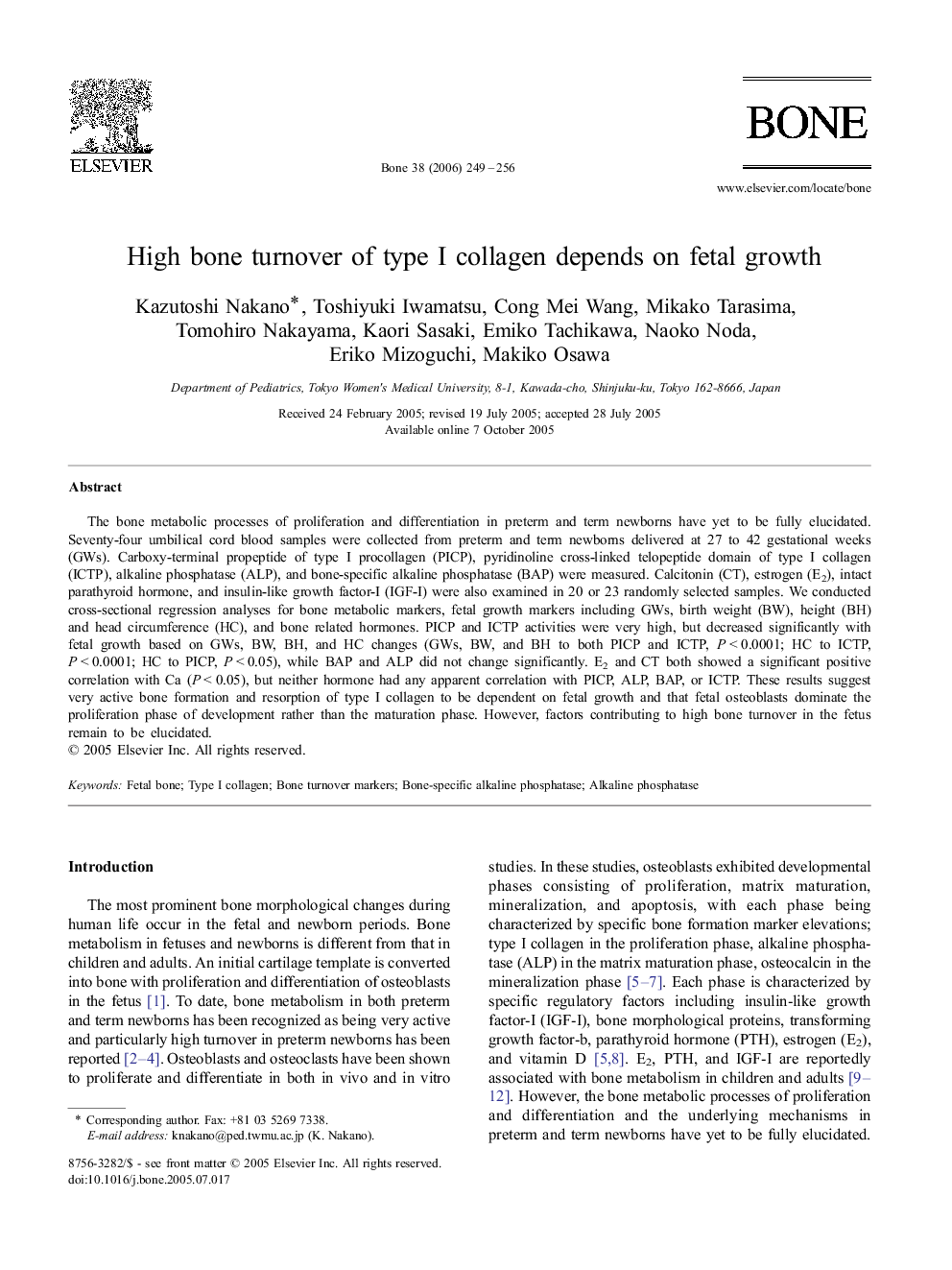| کد مقاله | کد نشریه | سال انتشار | مقاله انگلیسی | نسخه تمام متن |
|---|---|---|---|---|
| 2783171 | 1153381 | 2006 | 8 صفحه PDF | دانلود رایگان |

The bone metabolic processes of proliferation and differentiation in preterm and term newborns have yet to be fully elucidated. Seventy-four umbilical cord blood samples were collected from preterm and term newborns delivered at 27 to 42 gestational weeks (GWs). Carboxy-terminal propeptide of type I procollagen (PICP), pyridinoline cross-linked telopeptide domain of type I collagen (ICTP), alkaline phosphatase (ALP), and bone-specific alkaline phosphatase (BAP) were measured. Calcitonin (CT), estrogen (E2), intact parathyroid hormone, and insulin-like growth factor-I (IGF-I) were also examined in 20 or 23 randomly selected samples. We conducted cross-sectional regression analyses for bone metabolic markers, fetal growth markers including GWs, birth weight (BW), height (BH) and head circumference (HC), and bone related hormones. PICP and ICTP activities were very high, but decreased significantly with fetal growth based on GWs, BW, BH, and HC changes (GWs, BW, and BH to both PICP and ICTP, P < 0.0001; HC to ICTP, P < 0.0001; HC to PICP, P < 0.05), while BAP and ALP did not change significantly. E2 and CT both showed a significant positive correlation with Ca (P < 0.05), but neither hormone had any apparent correlation with PICP, ALP, BAP, or ICTP. These results suggest very active bone formation and resorption of type I collagen to be dependent on fetal growth and that fetal osteoblasts dominate the proliferation phase of development rather than the maturation phase. However, factors contributing to high bone turnover in the fetus remain to be elucidated.
Journal: Bone - Volume 38, Issue 2, February 2006, Pages 249–256